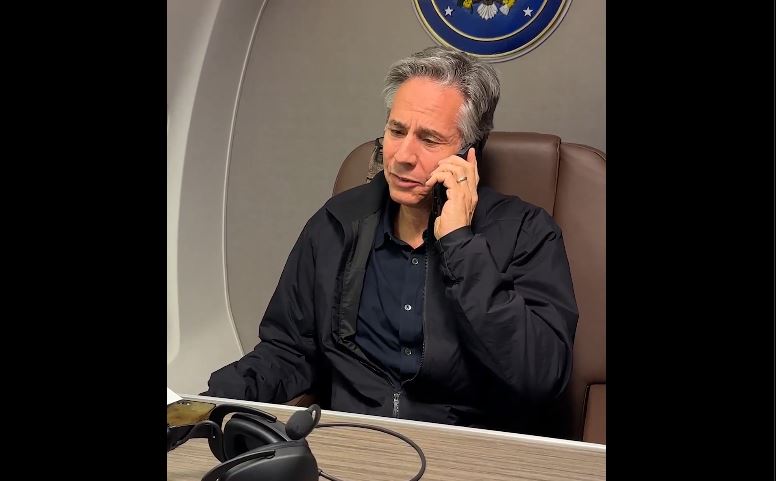Synopsis:
On September 5, 2024, U.S. Secretary of State Antony Blinken made a significant visit to Haiti, emphasizing the urgent need for an electoral council to organize the country’s elections in 2025. This article explores Blinken’s call for action, the current state of Haiti’s political and security situation, and the broader implications for Haiti’s future. As Haiti continues to face severe security challenges and political instability, the establishment of an electoral council is seen as a crucial step towards ensuring a democratic and stable electoral process.
The Urgent Need for an Electoral Council in Haiti
U.S. Secretary of State Antony Blinken’s visit to Haiti on September 5, 2024, spotlighted a pressing issue in the Caribbean nation: the establishment of an electoral council to oversee the elections scheduled for next year. This call to action underscores the critical need for structured and transparent electoral processes amid ongoing challenges.
Importance of an Electoral Council for Haiti’s Future
The proposed electoral council is expected to play a central role in organizing the elections for 2025. This body will be responsible for managing the electoral process, ensuring fairness, and overseeing the logistics required for a successful election. Blinken’s advocacy for this council reflects a broader international concern about Haiti’s political future and the need for a stable democratic process.
Blinken’s Diplomatic Visit and Its Significance
During his visit, Blinken met with key Haitian officials, including Prime Minister Garry Conille and Transitional Presidential Council Coordinator Edgard Leblanc Fils. These meetings were crucial in discussing the urgent need for an electoral council and addressing the various issues that Haiti faces. Blinken’s statements during the press conference in Port-au-Prince highlighted the importance of establishing this council promptly to facilitate the upcoming elections.
Haiti’s Ongoing Security Crisis
Haiti’s security situation remains dire, with violent gangs controlling significant portions of the capital, Port-au-Prince, and extending their influence into other areas. This escalation in gang violence has exacerbated the country’s instability, making it increasingly difficult to conduct safe and effective electoral processes. The widespread violence has led to severe disruptions in daily life and governance, contributing to the urgency of the electoral council’s establishment.
Prime Minister Conille’s Response to the Crisis
In response to the escalating violence, Prime Minister Garry Conille declared a state of emergency across Haiti. This decision reflects the severity of the situation and the government’s commitment to addressing the immediate security threats. The state of emergency aims to restore order and provide the necessary conditions for the electoral council to function effectively and organize the elections.
The Role of the Transitional Council
The transitional council, established in April 2024 following the resignation of former Prime Minister Ariel Henry, has been a pivotal element in Haiti’s political landscape. This body was created to manage the country’s affairs during the interim period and prepare for the upcoming elections. Blinken’s visit and his call for an electoral council are part of a broader strategy to ensure that Haiti can transition smoothly to a more stable and democratic government.
Challenges in Implementing the Electoral Council
Implementing an electoral council in Haiti comes with its own set of challenges. The current security environment, marked by rampant gang violence and political instability, poses significant hurdles. The logistical and administrative complexities involved in setting up the council also require careful planning and international support.
International Support and Involvement
The international community, including the United States and various United Nations missions, has been actively involved in supporting Haiti’s efforts to address its security and political challenges. The presence of Kenyan police officers as part of a UN-backed security mission is a testament to the international commitment to assisting Haiti in its time of need. The U.S. is the largest contributor to this mission, reflecting its vested interest in Haiti’s stability and democratic processes.
Implications for Haiti’s Democratic Future
The establishment of the electoral council is not just a logistical step but a critical component in shaping Haiti’s democratic future. A well-organized electoral process is essential for ensuring that the voices of Haitian citizens are heard and that the election results are legitimate and accepted by the public. The international community’s support for this process is crucial in helping Haiti overcome its current challenges and achieve a stable and democratic governance structure.
Potential Impact on Haiti’s Political Stability
The successful formation and operation of the electoral council could significantly impact Haiti’s political stability. A transparent and credible electoral process is likely to restore public confidence in the government and contribute to long-term stability. Conversely, any delays or issues in establishing the council could exacerbate existing problems and further destabilize the country.
Looking Ahead: The Path to 2025 Elections
As Haiti prepares for its 2025 elections, the establishment of the electoral council remains a critical step. The coming months will be pivotal in determining how effectively this body can be set up and whether it can manage the electoral process amidst ongoing security challenges. The international community’s continued support and Haiti’s own efforts will be crucial in ensuring that the elections are conducted smoothly and that the results reflect the will of the people.
Conclusion
The call for an electoral council by U.S. Secretary of State Antony Blinken highlights the urgent need for Haiti to address its electoral and security challenges. As Haiti faces significant hurdles, including violent gang activity and political instability, the establishment of this council is a crucial step towards ensuring a democratic and stable electoral process. The support of the international community, along with effective domestic measures, will be essential in navigating the path to the 2025 elections and securing a better future for Haiti.

Sunil Garnayak is an expert in Indian news with extensive knowledge of the nation’s political, social, and economic landscape and international relations. With years of experience in journalism, Sunil delivers in-depth analysis and accurate reporting that keeps readers informed about the latest developments in India. His commitment to factual accuracy and nuanced storytelling ensures that his articles provide valuable insights into the country’s most pressing issues.



